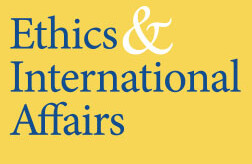I argue that for paternalistic interference in foreign countries to be justified, it needs to be strictly proportional to domestic impediments to self-government and basic rights protection. Based on this claim, I model different degrees of interference that are admissible at particular stages of the postwar reconstruction process. Extrapolating from John Rawls's Law of Peoples, I suggest that full-scale international trusteeship can be justified only so long as conditions on the ground remain "outlaw"—that is, so long as security remains volatile and basic rights, including the right to life, are systematically threatened. Once basic security has been reestablished, a lower degree of interference continues to be justified, until new domestic governance structures become entirely self-sustaining. During this second phase of postwar reconstruction, external actors ideally ought to share responsibility for law-enforcement and administration with domestic authorities, which implies in practice that domestic and international officials should jointly approve all major decisions. I discuss various approximations of such shared responsibility in recent international peace operations and speculate about how best to ensure a timely transition toward full domestic ownership.
To read or purchase the full text of this article, click here.


